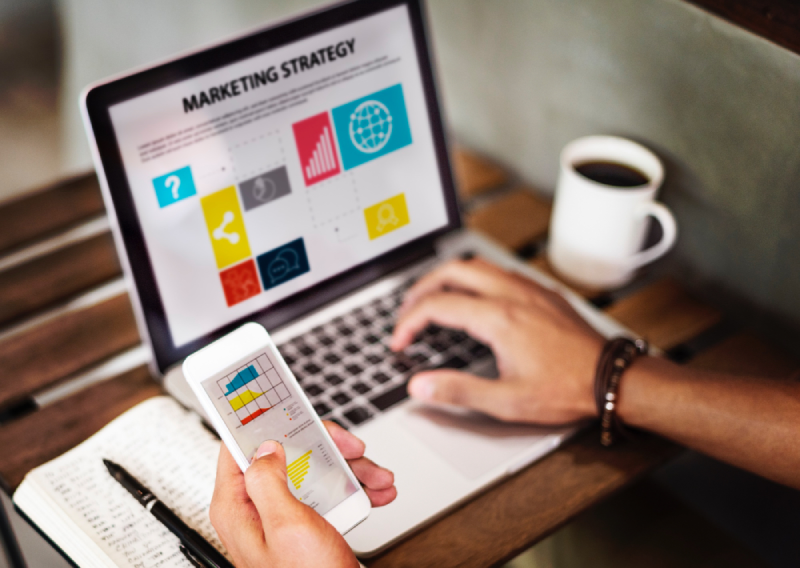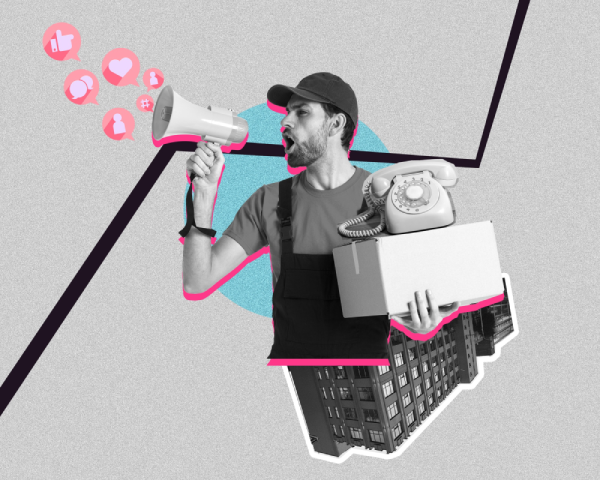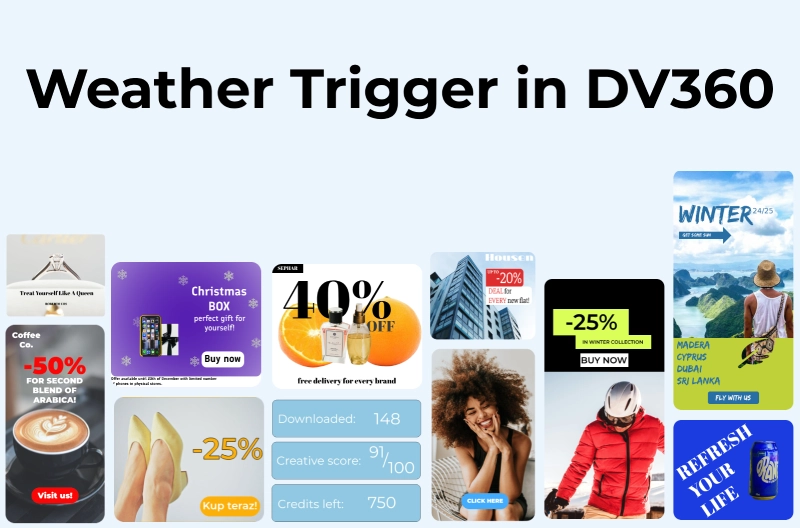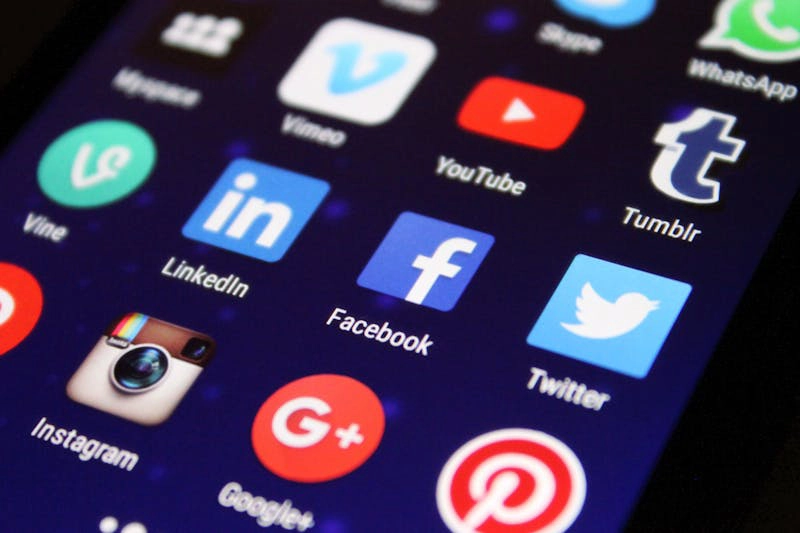January 18, 2025
by Bartosz Salamon
Share
Event-based marketing has emerged as a pivotal strategy in the digital age, where timing and relevance are key to capturing audience attention. This approach involves tailoring marketing efforts to coincide with specific events or triggers, thereby increasing the relevance and impact of marketing messages. In today’s fast-paced digital landscape, where consumers are bombarded with information, event-based marketing stands out by delivering timely and pertinent content that resonates with the audience.
One of the challenges in executing successful event-based marketing campaigns is the need to manage and synchronize these campaigns across various digital platforms. This is where AdsLinkers comes into play. As a comprehensive digital marketing platform, AdsLinkers offers a seamless solution for marketers to orchestrate their event-based marketing campaigns across multiple channels, ensuring consistency, efficiency, and effectiveness.
Understanding Event-Based Marketing
What is Event-Based Marketing and Why is it Crucial?
Event-based marketing is a strategy that focuses on creating marketing campaigns triggered by specific events or customer actions. These events could range from changes in consumer behavior, significant dates, or even real-time social trends. The core idea is to capitalize on the moment when a consumer’s interest is at its peak, thereby enhancing engagement and improving the likelihood of conversion.
In the current market landscape, where consumer attention is a scarce commodity, event-based marketing offers a way to cut through the noise. It allows brands to connect with their audience in a more meaningful and relevant manner. By aligning marketing messages with events that are already on top of consumers’ minds, businesses can significantly increase the effectiveness of their marketing efforts.

Benefits of Event-Based Marketing
Event-based marketing offers numerous advantages, especially in an era where digital interactions are predominant:
- Increased Engagement: By aligning marketing messages with current events or consumer actions, businesses can create more engaging and relevant content. This relevance drives higher engagement levels, as the content resonates more with the audience.
- Higher Conversion Rates: Event-based marketing typically sees higher conversion rates compared to traditional methods. This is because the marketing message is delivered when the consumer is most receptive to it, often leading to immediate action.
- Real-time Customer Interactions: This approach allows businesses to interact with customers in real-time, providing immediate responses to events or actions, which can significantly enhance the customer experience and brand loyalty.
The Role of Digital Platforms in Event-Based Marketing
The Digital Shift in Marketing
The landscape of marketing has undergone a significant transformation with the advent of digital technology. The shift from traditional forms of marketing to digital platforms has not only changed how brands communicate with their audience but also altered the dynamics of customer engagement and interaction. In this digital era, consumers are increasingly online, making digital platforms an essential space for brands to connect with their audience.
Digital platforms offer several advantages over traditional marketing channels:
- Broader Reach: The internet’s global nature allows businesses to reach a wider audience, transcending geographical boundaries.
- Targeted Marketing: Digital platforms provide tools to target specific demographics, leading to more effective and personalized marketing campaigns.
- Interactive Engagement: These platforms enable two-way communication, allowing customers to interact, provide feedback, and engage with the brand in real-time.
- Data-Driven Insights: Digital marketing provides access to a wealth of data, offering valuable insights into customer behavior, preferences, and trends.

Leveraging Multiple Platforms in Event-Based Marketing
While digital platforms offer numerous benefits, managing event-based marketing campaigns across multiple channels can be challenging. Each platform has its unique audience, format, and interaction style, requiring tailored content and strategies. This is where the need for a centralized management system becomes apparent.
Centralized management of marketing campaigns, as offered by platforms like AdsLinkers, provides several advantages:
- Consistency Across Channels: Ensuring a consistent message across all platforms is crucial in maintaining brand identity and message integrity. Centralized management helps in maintaining this consistency.
- Efficiency in Campaign Management: Managing multiple platforms separately can be time-consuming and prone to errors. A centralized system streamlines these processes, saving time and reducing the likelihood of mistakes.
- Real-time Campaign Adjustment: Platforms like AdsLinkers allow marketers to monitor campaign performance in real-time across all channels, enabling immediate adjustments based on customer response or other external triggers.
Centralized management systems like AdsLinkers play a pivotal role in the efficient and effective execution of event-based marketing strategies across various digital platforms.
AdsLinkers – Your Partner in Event-Based Marketing
Introduction to AdsLinkers
AdsLinkers emerges as a powerful ally for marketers venturing into the realm of event-based marketing. Designed to streamline the management of marketing campaigns across multiple digital platforms, AdsLinkers offers a suite of features that enhance the efficacy and efficiency of these campaigns. At its core, AdsLinkers is about simplifying the complex nature of digital marketing, especially in scenarios where timing and relevance are crucial.
How AdsLinkers Empowers Event-Based Marketing
Synchronization Across Multiple Platforms: One of the standout features of AdsLinkers is its ability to synchronize marketing efforts across various digital channels. This synchronization ensures that event-based campaigns are uniformly executed, maintaining consistency in messaging and brand voice across diverse platforms. Whether it’s a trending social media hashtag or a significant global event, AdsLinkers enables marketers to quickly activate campaigns across all channels, ensuring maximum reach and impact.

Advanced Features of AdsLinkers
While the primary advantage of AdsLinkers lies in its synchronization capabilities, it also offers other advanced features that enhance event-based marketing:
- Customized Campaign Triggers: AdsLinkers allows for the creation of custom triggers based on specific events or consumer behaviors, enabling marketers to launch campaigns that are highly targeted and relevant.
- Seamless Integration with Existing Systems: The platform integrates smoothly with existing marketing tools and systems (i.e. Google Ads, Display & Video 360 or Meta advertising), ensuring a hassle-free addition to the marketer’s toolkit.
- User-Friendly Interface: Its intuitive interface makes it easy for marketing teams to manage campaigns, regardless of their technical expertise.
Implementing Event-Based Marketing with AdsLinkers
Implementing an effective event-based marketing strategy using AdsLinkers involves a series of three steps designed to maximize the potential of your campaigns:
- Define your triggers
- Grant access to marketing platforms
- Create workflow and start your digital strategy
Best Practices for Using AdsLinkers in Event-Based Marketing
To make the most of AdsLinkers in your event-based marketing strategy, consider the following best practices:
- Stay Aligned with Your Brand Voice: Consistency in messaging across all platforms is crucial. Ensure that your event-based campaigns reflect your brand’s core values and tone.
- Focus on Timeliness and Relevance: The success of event-based marketing hinges on how timely and relevant your campaigns are. Keep a close eye on trends and be ready to act quickly.
- Leverage Platform Strengths: Each digital platform has its unique strengths. Tailor your content to leverage these, using AdsLinkers to maintain a cohesive campaign strategy.
- Continuous Learning and Adaptation: Use the data from individual platforms to learn about your audience’s preferences and behaviors, continuously refining your approach for better results.
Conclusion: The Future of Event-Based Marketing with AdsLinkers
Event-based marketing represents a dynamic and highly effective approach to connecting with audiences in the digital age. By leveraging the power of timely and relevant marketing, brands can significantly enhance engagement and conversion rates. AdsLinkers stands as a valuable tool in this realm, providing a platform for efficient and effective campaign management across multiple digital channels.
As the digital landscape continues to evolve, the importance of agile and responsive marketing strategies will only grow. AdsLinkers offers a solution that not only meets the current demands of event-based marketing but is also poised to adapt to future trends and changes in the digital marketing world.
We encourage marketing specialists and directors to explore the potential of AdsLinkers in their event-based marketing strategies. By embracing this innovative approach, brands can stay ahead in a competitive and ever-changing market.






